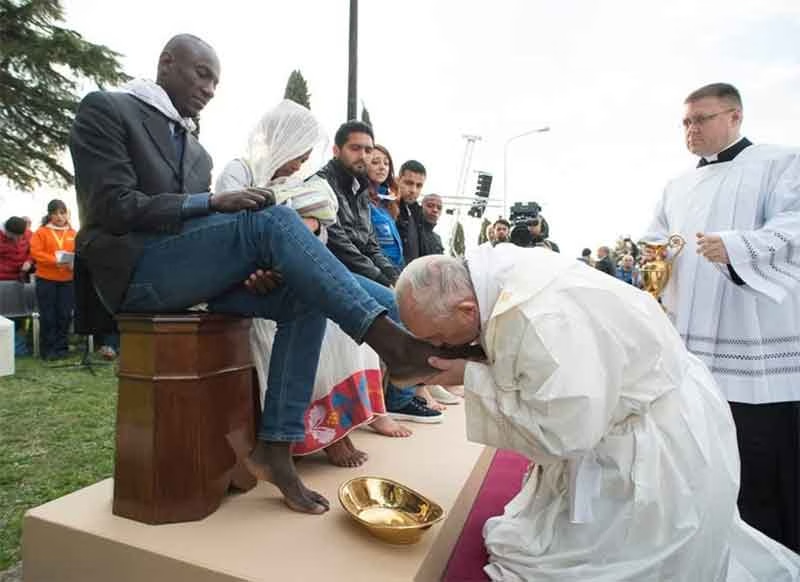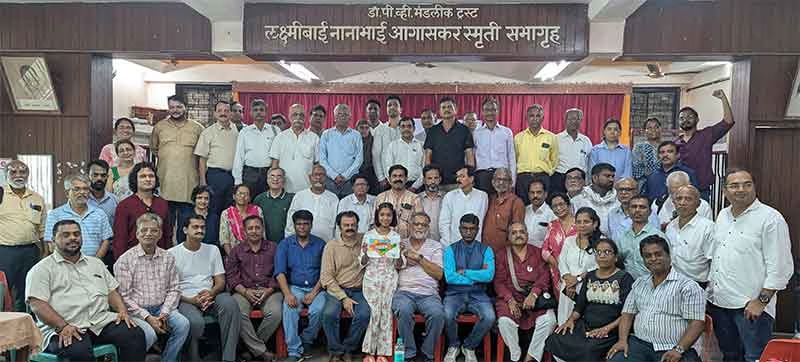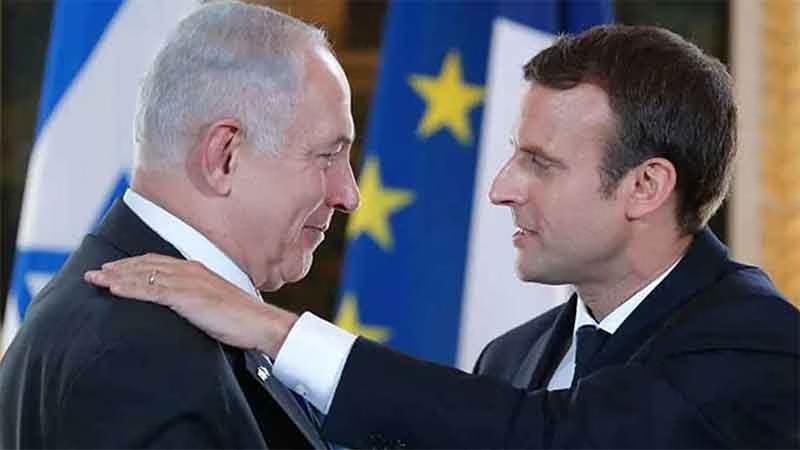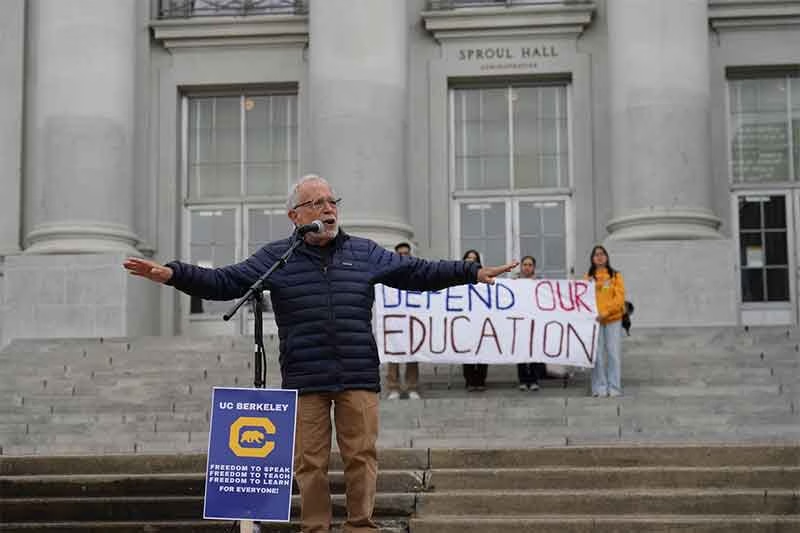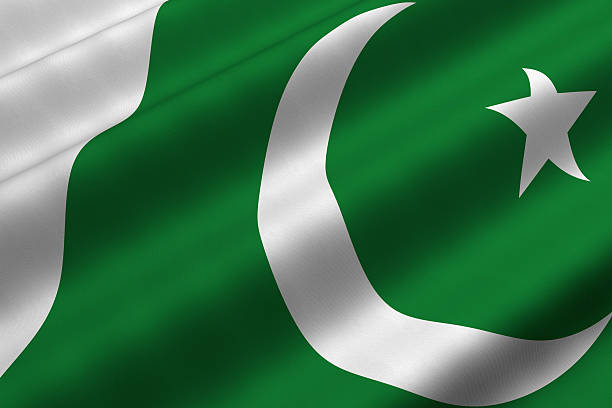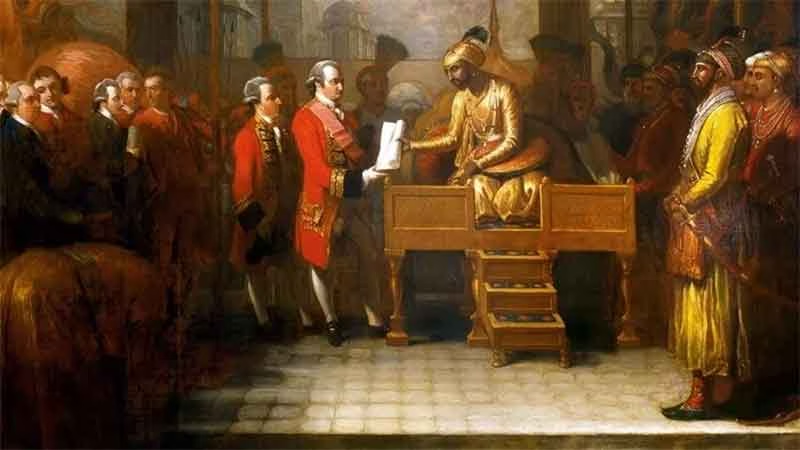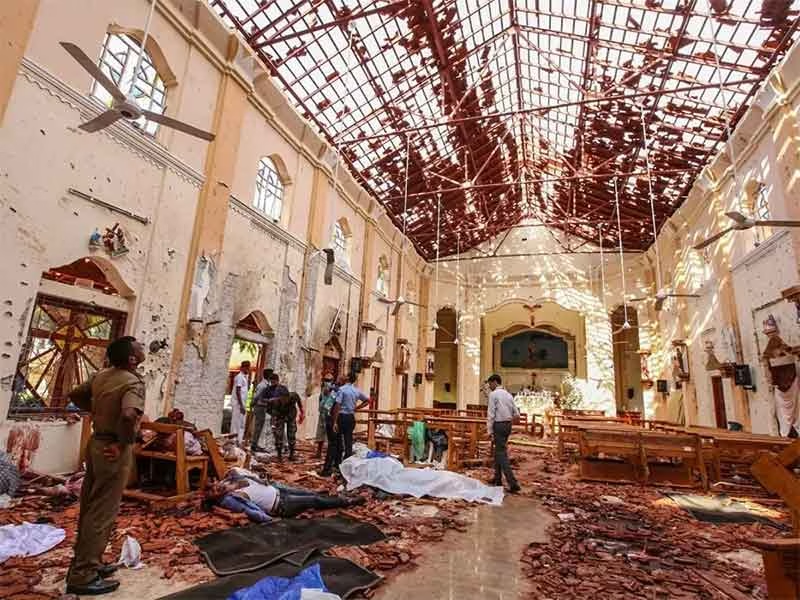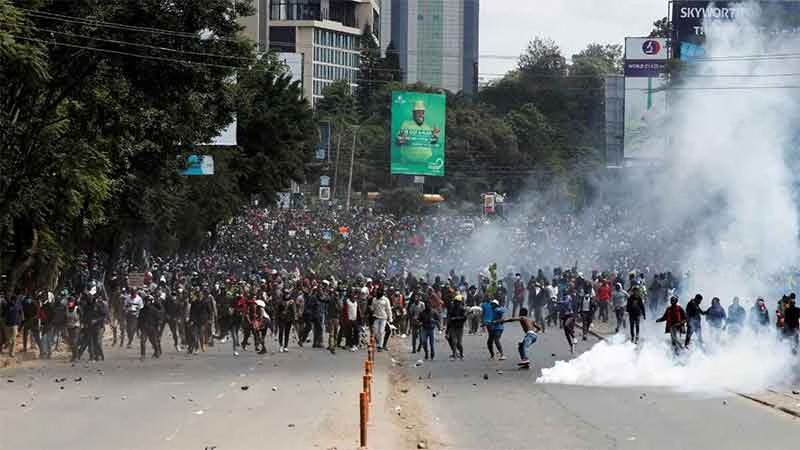
The exchange of banters between the outgoing veteran Congress MP Renuka Chaudhury and India’s Vice-President Venkaiah Naidu in the Rajya Sabha, during the ceremony to bid farewell to her and other retiring MPs , has taken an ugly turn. In her farewell speech Renuka Chaudhury while addressing Naidu (who is also the Rajya Sabha Chairman), in a self-deprecating humorous vein poked fun at her own girth saying: “Sir, many people worry about my weight, but in this job (of politics), you need to throw your weight around.” To this, Naidu replied: “…reduce your weight and make efforts to increase the weight of your party.” Now, if this banter between the two – both of whom having known each other for many years despite their political differences – took place in the private surroundings of a lunch or dinner party in the capital, where such slanging jests are quite common, it would have been laughed off, and ignored by the media.
But once such a badinage is transported to the public arena of Parliament, or political rallies, it assumes a different dimension, particularly from the viewpoint of women, who quite understandably feel insulted by the misogynist comments and anti-women slurs made by ministers, MPs, political leaders (irrespective of their ideological beliefs) on the floors of the Lok Sabha, as well as in mass meetings. As Renuka Chowdhury stated in a newspaper interview soon after the Rajya Sabha encounter, this was not the first time that Venkaiah Naidu had cast slurs on her body. Earlier, he had said to her: “Why don’t you go and see a doctor ?” In her interview, Renuka Chowdhury counters such questions by asking: “Do they (male politicians) tell men why don’t you lose weight ?’ or why don’t you get a hair-cut ?’ or ‘trim your beard’ ?” 1
She could have added another question: “Since charity begins at home, why doesn’t our honourable Vice-President look at his own girth, and find out if it is any less in size ?” But I appreciate her cultural values which would not allow her to stoop to the level of indulging in such bodily diatribes against an individual who should have realized on his own, that it did not behove him as the Vice-President to make comments about her body in the Rajya Sabha. Till now, he has not apologized for his comments – which revalidates the painful fact that Indian male politicians (irrespective of their party loyalties) are totally insensitive to feminine sentiments – whether of their female colleagues in the political sphere, or of women in general in society.
Such patriarchal attitudes to the female body often masquerade as avuncular patronizing – as demonstrated by the behavior of the Tamilnadu governor, Banwarilal Purohit, an erstwhiler BJP politician again. At a press conference in Chennai on April 17, 2018, he was asked by a woman journalist Lakshmi Subramaniyam regarding reports about his ambiguous role in intervening in the case of a woman professor of a local college who was accused of forcing her girl students to provide sexual favours to university officials. In response, Banwarilal Purohit walked up to her and patted her cheek. When later, Subramaniyam came out with a public statement protesting against his behavior, the governor sent her a message that smacks of the hypocritical male attitude of trying to keep women under their control in the name of parental benevolence. He explained his (unwanted) pat as “…an act of appreciation for the question that you had posed, I gave a pat on your cheek considering you to be my granddaughter…” Subramaniam retorted with a verbal slap, putting him in his place: “I didn’t want his appreciation…I wanted an answer. He is the constitutional head of a state. I am a journalist. There can be no other relationship.” (Re: https://www.ndtv.com)
Such patriarchal anti-women innuendos are not confined to the Indian political scenario. At around the same time in March this year, on the floors of the British House of Commons, UK’s Foreign Secretary Boris Johnson described his rival Labour party female politician Emily Thornberry as “Lady Nugee.” The Speaker of the House of Commons immediately upbraided Boris Johnson, and forced him to come out with a public announcement, apologizing for “…any inadvertent sexism or discourtesy…I apologize unreservedly to her..” 2
In sharp contrast to such practices, Indian male legislators and politicians do not have the grace to tender such apology. When the Rajya Sabha Chairman himself (who is also the Vice-President of India), and a state governor, indulge in such verbal innuendos and unwanted physical touches that insult the female body, what hopes are there for Indian women for protection from a patriarchal state ?
Body-centric politics
In the current political discourse in India, the body has acquired an important position. The tone was set by our present prime minister Narendra Modi, when in his election speeches in 2014, he boasted about his 56-inch chest’ - a metaphor for muscular policies that he promised to implement, to defeat China and Pakistan on the foreign front, and bring back corruption-tainted black money from abroad in the domestic front. On both the fronts, the 56-inch chest’ has turned out to be a pigeon chest – in terms of the body-centric politics. It is sticking out with narrow bones of failed foreign and economic policies, but yet trying to infiltrate into the Indian body politic with its poisonous rib bones.
The discourse is marked by a conflict between two forces – the dominant patriarchal tendency to flaunt the male body as a symbol of nationalistic muscle power (whether through official statements, public speeches by political leaders, or the mass media) on the one hand, and the emerging voices of women trying to free their bodies from male physical, social and political control on the other. But this discourse is taking place in an unsettling politically and socially uneven playing field, where the traditionally powerful male actors are now resorting to brutal tactics to cope with the new challenges posed by the hitherto subjugated women. In the villages of Uttar Pradesh, Haryana, Rajasthan and other parts of India, young girls are crossing their caste and religious boundaries that had been laid down by the patriarchal khap panchayats’, to choose partners according to their individual desires. In the urban areas, a new generation of women working and holding offices in IT and banking sectors, and multinational firms, have broken out from the traditional norms of dress codes like ghunghat’, and burkha’, imposed upon them by their respective Hindu and Muslim clergies, which their sisters in the villages are still being forced to follow. These urban women, if dressed in jeans or shorts, or if found in the company of their male friends, are persecuted by the moral police brigade’ – vigilantes appointed by Hindutva outfits like Bajrang Dal, Shiv Sena, Vishva Hindu Parishad.
Both the rural and urban women who determinately make their individual choices, are subjected not only to social opprobrium (which often extends to their being lynched by their own family members in the name of honour killing’), but also harassment by the judiciary, as happened some time ago in Kerala, where the High Court nullified the marriage of a 24-year old Hindu woman (Akhila who converted to Islam and adopted the name Hadia) with her Muslim lover, on the ground that the bride’s parents did not give consent for the marriage ! This was despite the woman herself acknowledging that she willingly converted to Islam and wanted to live with her husband ! <strong><sup>3</sup></strong> In the rural areas of north India, such inter-religious marriages are immediately fake-newsed as love-jihad’ – rumoured as a case of a Muslim alluring a Hindu girl – that leads to communal riots.
But there is also a body-centric dimension to it. I remember way back in the 1960s as a reporter covering Hindu-Muslim communal riots in Calcutta, a Hindu neighbor of mine lamented: “You know, those Muslims – they have more sexual prowess than us, because of their circumcised penises.” Such myths tend to reinforce the stereotyped image of Muslim males as sexual threats, the fear of which among Hindu males can be worked up to a frenzy by the Sangh Parivar to unleash the murderous campaign against Muslims by attributing the term `love jihad’ to Hindu-Muslim marriages.
Femophobia – patriarchal fear of the female body
What is unnerving however is that the Sangh Parivar’s male chauvinist propaganda finds echoes even in the utterances of its political opponents in the Samajwadi Party, and even the Congress. Let me just compare a few quotes by RSS leaders with those of their political rivals. The RSS head Mohan Bhagawat in a talk in 2013 said: “Rapes take place in cities …. Such incidents happen due to the influence of Western culture and women wearing less (sic.) clothes.” Soon after at a rally in April 2014 , the Samajwadi Party leader Mulayam Singh Yadav came out with his infamous statement: “Should rape cases lead to hanging ? Boys are boys, they make mistakes.” To look back at the role of another leader of this Samajwadi group, in 2013, during a debate on the Women’s Reservation Bill in the Lok Sabha , its MP Sharad Jadav opposed the bill describing women demanding reservation as “par kati mahilayein” (a term used for short-haired women). Still later, in the Rajya Sabha in 2015, during a debate on the Insurance Bill, he was recorded to have said: “The body of women from South is as good as beautiful they are. They in our region are not that good as beautiful as those (in South) know dancing (sic.) …” At that time, the DMK MP Kanimozhi protested against these remarks, and the CPI(M) leader Brinda Karat demanded that Parliament should adopt a code of conduct and ensure that such incidents did not happen again in future. 4 Congress male politicians are no less culpable in indulging in patronizing sexist comments, targeting even their own female colleagues. In 2013, the Congress general secretary Digvijay Singh lauded his party MP from Mandsaur, Meenakshi Natrajan by using the male chauvinist term “sau tunch maal” (loosely translated into English as `a desirable object.’). 5
But it is the BJP politicians and legislators who take the cake. Bred on feudal authoritarian values, brought upon orthodox Hindu religious superstitions, and trained to violently oppose the cultural norms and rational values of a liberal humanitarian civilization, these uncouth leaders of the Indian ruling party, by their crackbrained utterances and misogynist acts are making India stink in the opinion of the world. Let me give a few examples. In October, 2014, the BJP chief minister of Haryana, Manohar Lal Khattar came out with this ridiculous statement: “If a girl dressed decently, a boy will not look at her in the wrong way…” Then referring to clothes worn by other girls, he added: “ These short clothes are western influences (sic.) “ 6 His supreme leader prime minister Narendra Modi, carried this misogynist message further by branding a veteran woman politician as a female villain. During a debate in the Rajya Sabha in February, 2018, he described the Congress MP Renuka Chowdhury as the legendary female demon Suparnakha of the mythical tale of Ramayana. Renuka Chowdhury’s only fault was her breaking out in loud laughter when the prime minister was making stupid claims of his achievements (most of which have been proved to be false now). One cannot but agree with her complaint made in a later newspaper interview, about “ the loutish Prime Minister (who) talks rubbish” 7
Gang rapes, love jihads’, honour killings’ under the BJP regime
Given such messages from the centres of power – ranging from the prime minister himself to the BJP MLAs – it is not surprising that their followers feel immune against any punishment for their raping sprees. They are assured of protection by their BJP leaders. The two recent incidents of rapes in Unnao in UP and Kathua in Jammu and Kashmir illustrate the depths of depravity to which these national and local politicians have sunk. Both the prime minister and the UP chief minister continued to turn a blind eye to the allegation of rape against their party MLA Kuldeep Singh Sengar. It was only after the Allahabad High Court came down strongly on the Adityanath government’s failure to arrest him that Narendra Modi broke his silence on April 13 saying: “Our daughters will get justice….we are ashamed of it.” Similarly, in the Kathua case, when two BJP ministers of the Jammu and Kashmir government publicly defended those accused of raping and killing an eight-year old girl from the nomadic Muslim Bakharwal community, both the central and state BJP leadership remained silent. It was again under the pressure of mass protests which compelled its partner, the PDF chief minister Mufti Mehbuba, to express displeasure, that forced prime minister Modi to advice the two BJP ministers to resign. But even then, the party’s stubborn spokesman Ashok Kaul maintained: “They (the two BJP ministers) have not done anything wrong.” 8 The extent to which this moral depravity has infected civil society was demonstrated by the acts of the lawyers of Jammu, who tried physically to prevent the filing of case against the accused.
Narendra Modi’s much ballyhooed slogan of Beti banchao’, has turned out to be a cover for Beti dharshan’ (raping of girls) to be indulged in by his followers. It is not surprising that gang rapes, love jihads,’ honour killings’ – all targeted against women – are mostly happening in BJP-ruled states.
Encouraged by the misogynist diatribes of their MLAs and ministers, these predators from the Sangh Parivar feel free to rape women in their villages , and kill those who dare to marry outside their caste and religious barriers. They are attacking Muslim youth who marry Hindu girls, accusing them of love jihad,’ and lynch Dalit men who marry upper caste women, in the name of honour killing’. All these acts are sanctioned by the notorious khap-panchayats’ (the all-male village councils in the north Indian countryside, which have no legal locus standi, but enjoy patronage of local politicians). The most notorious instance is the diktat issued by a khap panchayat’ in Baghpat in Uttar Pradesh in 2015, which ordered its male villagers to rape two Dalit sisters as punishment for their brother’s misdemeanor’ - his fault being his eloping with an upper caste Jat woman of the village. The Jat family’s honour’ had to be restored by revenge through raping his sisters ! 9 Yet, despite such open instances of gross violation of human rights by these khap panchyats,’ the BJP chief minister of Haryana, Manohar Lal Khattar has issued a clean chit to them, describing them as “custodians of social customs.” <strong><sup>10 </sup></strong>The so-called social customs’ include the dress code for women, designed by men (whether the ghunghat’ for Hindu women, or the burkha’ for Muslim women) – which re-asserts the male control over the female body, and the dress that she must wear.
Compliant role of BJP’s women ministers and politicians
But what is even more shameful is the complicity of BJP’s women politicians in the depraving sports of their misogynist male colleagues. When the Information and Broadcasting Minister, Smriti Irani was confronted by journalists for her response to the allegation of rape against a BJP MLA , she just drove away, and later came out with a peculiar message: “ Don’t victim-shame and politicize.” 11 Who, according to her is the victim – her party’s MLA who is being shamed for his crime ? Her other colleague Maneka Gandhi opened her mouth only after the prime minister condemned the incidents, when she demanded that rapists of young girls should be punished with death sentence. But why is she silent about the need to punish her own male colleagues in her party who defend the perpetrators of such acts (like the two Jammu and Kashmir BJP ministers – who were let off after their cosmetic act of resignation from the state cabinet) ?
The other women ministers in the BJP-led central cabinet, Sushma Swaraj and Nirmala Sitharaman, who are otherwise vociferous at press conferences, have curiously enough chosen to be silent on this particular issue of assaults faced by women from BJP male politicians and their protégées in UP, Rajasthan and other states. We wonder how these educated and enlightened women conform to the specific roles assigned to them by a patriarchal ruling party which orders them to serve its specific purposes. In the hidden conclaves of the BJP cabinet do these female politicians have any say in decision making ? How do they feel deep down within themselves when they move around with their boorish male political colleagues, and passively watch the depredations of the BJP’s redneck rowdies on women ?
Sumanta Banerjee is a political and civil rights activist and social scientist
Notes
- Renuka Chowdhury’s interview in DECCAN CHRONICLE, April 2, 2018
- Re: GUARDIAN, 27 March, 2018
- Re: INDIA TODAY, May 25, The ground on which the sitting judge (or judges) nullified the marriage is a sad reflection on the patriarchal mind-set of these members of the judiciary. Thankfully, a division bench of the Kerala High Court, later in October in 2017, made amends by holding that all inter-religious marriages cannot be viewed as `love-jihad.’
- For all the above quotes, see: dnaindia.com/india/report-shared-yadav-s-remark-on-women-exposes-mps-true colours -2069379 – March 17, 2015
- Re: THE TIMES OF INDIA website, July 27,
- The Citizen Bureau October 22 2014.
- cit: Renuka Chowdhury’s interview in DECCAN CHRONICLE.
- Re: THE HINDU, April 14,
- Re: HUFFPOST, September 8, 2015. The case reported in the media, drew global attention when Amnesty International came out with a statement highlighting the violation of human rights in
- Re: FIRSTPOST, April 14,
- DECCAN CHRONICLE, Chronicle, April 15, 2018

